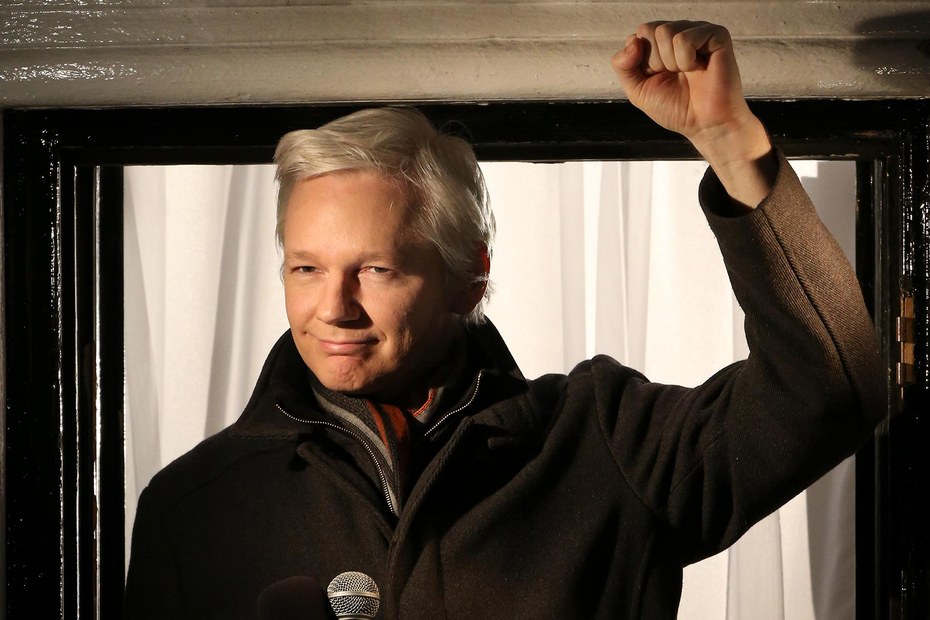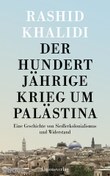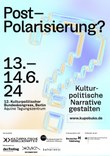In the North American and European context, most of us know that the notion of “the press” originated from the movable-type printing press machines that transformed publishing, information access, and literacy in the centuries following their invention by Johannes Gutenberg in the mid 1400s. Despite enjoying (or perhaps not) the fruits of instantaneous access to more information about the world than anyone in human history, while we may be familiar with the famous Gutenberg Bibles, few of us today know about the earlier origins of the printing press with woodblocking in medieval China; Wang Zhen is credited for the first known mass-produced text with movable type, Nong Shu, more than a century earlier.
“That was really the most remarkable breakthrough, wasn’t it?” raved British comedian and writer Stephen Fry, as he leafed through one of the few remaining copies of the Gutenberg Bibles for a history documentary. “That somebody in a monastery in Germany, somebody in a palace in Florence, and somebody in a private house in Amsterdam could turn to the same page number, the same word would begin at the top and at the end. They were looking at mass [media] production for the first time.”
The power to publish shifted from monastical scribes bent over desks in the scriptorium, to wealthy men in printers’ offices, to corporate outlets, to you and I clicking a button on any of thousands of popular websites accessible from almost anywhere in the world. In contrast to the guild-like system still in place within many European nations today, it is notable that with the founding of the United States, there was no legal distinction made in the Bill of Rights between ordinary citizens versus those who worked as professional printers or journalists: the “press” was simply those with the tools, the words, and the will to share them. U.S. Supreme Court Justice Felix Frankfurter wrote in a concurring opinion for Pennekamp v. Florida (1946) that “.. the purpose of the Constitution was not to erect the press into a privileged institution but to protect all persons in their right to print what they will as well as to utter it.”
Current appearances can be deceiving. On April 27th, the White House hosted its annual Correspondents’ Association dinner (WHCD) at the Washington Hilton Hotel. This event, as well as the association (WHCA) which issues credentials and seating charts for the weekday news briefings, is known to be so exclusive that even the New York Times has previously bittingly criticised it as a ‘show’ where celebrities and mainstream “journalists serve as a supporting cast” in a “propaganda stunt” to distract from whatever current political embarrassment or tragedy needs camouflage and comedic spin, as “has been figuratively true year-round.” This year was no different. One need only look at the substance of protests occurring just outside the Hilton complex, which focused on the wounding and deaths of civilians, journalists, and United Nations aid workers in Gaza. The International Federation of Journalists (IFJ) maintains a list of the names of journalists killed. Washington Post style section editor and columnist Amy Argetsinger, providing live commentary on the WHCD for the public broadcaster C-SPAN, noted that it was “awkward for media corporations to be investing in a dinner like this and in the surrounding parties” during nationwide layoffs. Fashion critic Vanessa Friedman preempted her detailed coverage of the stylists and designer brands on show at the WHCD by noting that the gathering “has morphed in recent years into a less campy, more staid prelude to the Met Gala, which takes place days later. It’s only fitting, really, given the subtext of journalists being jailed around the world.”
The president of the WHCA, Kelly O’Donnell, who was happily seated directly next to President Biden during the dinner, encouraged “smoozing” and “side-splitting, light-the-internet-on-fire laughter” during the opening. “We welcome you as we celebrate freedoms that are both enduring and repeatedly tested. Your prescence here speaks clearly and loudly about the essential connection between a free press, freedom of speech, and the democracy we value.” She later claimed that the job of White House correspondents is to “preserve the historical record, part of the legacy of the First Amendment.”
Leading up to President Biden’s speech, Ms. O’Donnell highlighted three cases of American journalists detained abroad, beginning with Wall Street Journal reporter Evan Gershkovich, who as of writing has been imprisoned pre-trial in Russia for 400 days on charges of espionage. Last April, the State Department issued a statement that they considered Gershkovich to be “wrongfully detained,” demanded his immediate release, “condemn the Kremlin’s continued repression of independent voices in Russia, and its ongoing war against the truth.” Second, Austin Tice, who has been missing since 2012. Reporters Without Borders (RSF) has been running a public awareness campaign since February 2015. Biden had met with Tice’s parents after the WHCD in 2022, and in August of that year he issued a statement that “we know with certainty that he has been held by the Government of Syria.” The Syrian government has publicly maintained that they are “unaware of Tice's whereabouts.” And finally Alsu Kurmasheva, an editor for the U.S. government-funded Radio Free Europe/Radio Liberty (RFE/RL), who was “charged with failing to register as a foreign agent while collecting information” and “spreading ‘false information’ about the Russian military.” Like Gershkovich, her pre-trial detention is currently scheduled to continue until at least June.
Without acknowledging the protestors outside, Ms. O’Donnel briefly stated that “since October, about a hundred journalists have been killed, most of those deaths in Gaza,” citing the Committee to Protect Journalists (CPJ). “Around the world, more than 320 imprisoned as of December.” According to the CPJ, that “number was the second-highest recorded by CPJ since the census began in 1992 – a disturbing barometer of entrenched authoritarianism and the vitriol of governments determined to smother independent voices.” The CPJ’s public dataset informing that figure does not recognise detentions within the regions of North America or Europe. As Der Freitag reported in March, an assessment on press freedom produced for the Council of Europe – to which CPJ was a contributor – recognized the ongoing detention of a journalist in the United Kingdom: Mr. Julian Assange. Yet during none of the speeches did anyone say his name, nor did they reference the joint open letter signed by the very publications where many are employed.
“There are some who call you the ‘enemy of the people.’ That’s wrong, and it’s dangerous. You literally risk your lives doing your job. You do,” remarked President Biden, alluding to the rhetoric of former President Trump. “Other reporters have lost their freedom. Journalism is clearly not a crime. Not here, not there, not anywhere in the world. And Putin should release Evan and Alsu immediately. We’re doing everything we can to bring home journalists” who are “wrongfully detained all around the world.” Whether as an election campaign tactic or a further attempt to ingratiate himself with the loyal White House press corp, it seems that Biden is more than willing to criticize the words of his predecessor and the actions of foreign nations, but he has not yet shown a willingness to challenge Trump’s most high-profile and high-stakes attack on the freedom of the press, and that is the prosecution of Mr. Assange. Why was President Biden not being challenged about, in fact, continuing the legacy of Trump?
We must especially consider the politics of publishing in the Assange case, who has been detained in Belmarsh for more than 1800 days while fighting extradition to the United States. A grand jury was active during both of Obama’s presidential terms, yet they could not bring charges in large part because of the so-called “New York Times problem.” Despite this and other fundamental conflicts in the investigation into WikiLeaks and Mr. Assange, such as the numerous prejudicial statements made by top U.S. officials, it laid the groundwork for the current persecution. The initial grand jury indictment under the Trump administration did not include charges under the Espionage Act, but the subsequent updated versions issued in May 2019 and June 2020 do. The Espionage Act (18 U.S.C. ch. 37) – under which seventeen of his eighteen charges are based – criminalizes not only the receipt and publication of so-called national defense information which isn’t necessarily secret or classified, but also ‘transmitting it’ in any way, and failing to ‘return it’ to relevant authorities. The Act does not distinguish between publishing on the principle of American citizens’ right to know what their government is doing versus sending it to a foreign power considered the enemy. As depicted by the mid-film conversation between fictional CIA spy chief Corbin O'Brian and pre-whistleblower Edward Snowden in the movie “Snowden” (2016), the intelligence community believes any unauthorized person knowing means the enemy knows. In such a world, the public is the civilian to protect, the target to exploit, and the enemy to fight, all at once. An activist or journalist who publishes against the interests of the current administration is considered no different than a spy.
“The act permits the government to conflate actions necessary in a democratic society – dissent, whistleblowing, and investigative reporting – with disloyalty. As eminent legal scholars Harold Edgar and Benno Schmidt Jr. have argued, the time is overdue for the legislative and judicial branches to withdraw the blank check they have given the executive branch regarding secrecy,” wrote Ralph Engelman and Carey Shenkman in the conclusion of “A Century of Repression: The Espionage Act and Freedom of the Press” (2022).
In October 2022, during a live television panel with former Trump national security advisor John Bolton and Stella Assange, host Piers Morgan asked Mr. Bolton, “Why is America so intent on bringing Julian Assange to unbelievably draconian justice of 175 years, the rest of his life in prison?” Mr. Bolton emphasised in his response that this was “a small amount of the sentence [Mr. Assange] actually deserves… I hope he gets at least 176 years in jail for what he did.” Mrs. Assange then described Mr. Bolton as an “ideological nemesis of Julian. He has, during his time [as a senior diplomat] for the Bush administration and later the Trump administration, sought to undermine the international legal system, and ensure that the U.S. is not under the International Criminal Court's jurisdiction. If it was, Mr. Bolton might in fact be prosecuted under the ICC. He was one of the chief cheerleaders of the Iraq War, which Julian then exposed through these leaks, so he has a conflict of interest here."
Indeed, during an interview with NPR just last March, Bolton not only defended the Bush administration’s decision to invade Iraq but declared: “Knowing everything I know now, I would do exactly the same thing.” His role in undermining the ICC is well-documented and analysed in two books: “The WikiLeaks Files: The World According to US Empire” (2015), a collection of essays by several regional experts who studied the diplomatic cables through a geopolitical lens; and “War and Justice in the 21st Century: A Case Study on the International Criminal Court and its Interaction with the War on Terror” (2022) by Luis Moreno Ocampo, the founding chief prosecutor of the ICC. Both point to the letter sent by Bolton in May 2002, in his position as Bush’s undersecretary of state for arms control and international security, to the U.N. secretary general, declaring that the United States would not be a party to the Rome Statute. Being a party would have permitted the ICC to pursue investigations and prosecutions of U.S. “soldiers and decision-makers” complicit in war crimes, crimes against humanity, and genocide in the event that there was “unwillingness or inability of the State” to do so on its own. In the preface, Ocampo states that “to shield its soldiers from criminal investigations, the US Congress prohibited cooperation with the ICC and even authorized an eventual invasion of the Netherlands to rescue US prisoners.” This was the American Servicemembers' Protection Act (2001), informally known as the "Hague Invasion Act,” one of the most controversial moves within a clear pattern throughout multiple administrations to only support “ICC policy when doing so was in American interests.” Republican senators recently referenced the Act within a letter threatening ICC chief prosecutor Karim Khan and court staff.
In his response to Mrs. Assange, Mr. Bolton and his mustache then threatened the American press organisations she had just mentioned as having shown some solidarity with Mr. Assange: “I would say to the esteemed editors of the Washington Post and the New York Times [that] when you try and equate yourself with Julian Assange, you’re making a very dangerous gesture. While you're saying the First Amendment should apply to him, a different kind of legal system could move it in the opposite direction and put you under prosecution as well.” Mr. Bolton did not clarify what he meant by ‘a different kind of legal system’ that he considers more powerful than the U.S. Constitution, but such a threat may lie beneath at least some of the silence and evasiveness around Mr. Assange’s name in Washington this week.
However, the source of most censorship is not overt in the form of lawfare or physical attack, such as the threats to violate Mr. Assange’s asylum protection, or to kidnap and assassinate him. Following the release of “When Google Met WikiLeaks” (2014), an extract was published in Newsweek, where Mr. Assange argued that “probably the most significant form of censorship, historically, has been economic censorship, where it is simply not profitable to publish something because there is no market for it.” The censorship pyramid had been the first topic of a discussion with former Google CEO Eric Schmidt in June 2011, and later became the material for the book. In March 2012, Mr. Assange recorded another group discussion for the eighth and ninth episodes of “The Julian Assange Show,” filmed by Laura Poitras and released by independent film distribution company Journeyman Pictures; a transcript of this conversation later became the book “Cypherpunks: Freedom and the Future of the Internet” (2012), and the censorship pyramid was outlined by Mr. Assange in the chapter on ‘Censorship.’ Social justice journalist and writer Marienna Pope-Weidemann visualised this description in 2013.
“Under the tip [of the censorship pyramid], the next layer is all those people who don’t want to be at the tip, who engage in self-censorship to not end up there.” Mr. Assange further explained that “journalists are rarely instructed, ‘Don’t print anything about that,’ or, ‘Don’t print that fact.’ Rather they understand that they are expected to because they understand the interests of those they wish to placate or grow close to. If you behave you’ll be patted on the head and rewarded, and if you don’t behave then you won’t. It’s that simple.”
Given that the U.S. prosecution alleges that Chelsea Manning, Mr. Assange, and others engaged in a “conspiracy,” it is noteworthy that Guardian journalists David Leigh and Luke Harding have not been indicted as co-conspirators, despite being media partners and having revealed the decryption password to the unredacted cable set in their book. Because of their book, der Freitag was able to find and decrypt the material, as reported in August 2011 and according to court testimony by then editor in chief Jakob Augstein; similarly, there were no reprecussions for obtaining the material. John Young, who first published the unredacted cable set on his website Cryptome, has testified that “no US law enforcement authority has notified me that this publication of the cables is illegal, consists or contributes to a crime in any way, nor have they asked for them to be removed."
The nature and mechanisms of this censorship pyramid were further explored in last year’s extensive collaborative reporting through investigative journalist Matt Taibbi’s Racket News on the “vast new public-private bureaucracy devoted to stopping ‘mis-, dis-, and malinformation,’” dubbed the ‘censorship-industrial complex.’ This has been the subject of multiple U.S. House of Representatives select-subcommittee hearings, and on May 1st this subcommittee published an interim staff report with allegations regarding a “campaign by the Biden White House to coerce large companies, namely Facebook, Google, and Amazon, to censor books, videos, posts, and other content online.” The prosecution of Mr. Assange is the tip of the spear, a spear fashioned under Bush and Obama, sharpened by Trump, and now wielded by the Biden administration.
Not everyone is as tight-lipped as the White House and its carefully curated correspondents. From 29 April through 1 May this week, the BBC hosted an event at their broadcasting house in central London, “highlighting the urgent and courageous work of journalists, analysing the state of media freedom globally and considering the future relationship of news and technology.” The conference featured workshops for journalism students and the release of investigative documentaries, including one that followed “BBC Arabic’s reporter in Gaza, Adnan El-Bursh, as he and team navigate their personal lives and journalism amidst the turmoil of the war.”
On the second day, Mrs. Assange shared the stage with host Mishal Husain and Nazanin Zaghari-Rafcliffe, who had been detained in Iran between 2016 and 2022 on allegations of “plotting to topple the government in Tehran, but no official charges were ever made public.” Both Ms. Zaghari-Rafcliffe and Mrs. Assange are familiar with the impact of such political prosecutions on their partners and children, as well as the broader media landscape. Ms. Husain asked, “as we go to Press Freedom Day, are you saying that that should be a warning to people about what can happen under democratic governments as well as the ones we talk about in other parts of the world?” Mrs. Assange replied that the case against her husband is “a mirror of what is being done to Evan Gershkovich in Russia. He’s accused of espionage for receiving / obtaining national defense information. Julian is accused of receiving / obtaining, possessing and communicating national defense information,” referring to the Espionage Act charges. “Not only does it set a legal prescedent, it sets a political prescedent as well. It sends the signal that Western governments put journalists in prison too, and that puts journalists all over the world in more danger, because it’s the new normal.” Political harassment, prosecution, and imprisonment of the press is not merely a concern in ‘Over-there-istan’ as implied by the current discourse at events such as the WHCD.
Mr. Assange, often subjected to solitary confinement and whose access to media is heavily restricted, appreciates the value of the written word more than most. In December 2023, American-British journalist Charles Glass visited Mr. Assange in Belmarsh prison. In his recounting of the meeting, Mr. Glass wrote that he “apologize[d] for not giving him any books, explaining that they told me he had exceeded his limit. [Assange] smiles again. In his first months, they allowed him to keep barely a dozen. Later, they expanded it to 15. He pushed for more. How many did he have now? ‘Two hundred and thirty-two.’ It is my turn to smile.” That’s more physical books than what over 90% of Americans individually own, according to a U.S. survey of almost 30,000 adults from October 2023.
In another article published in The Nation just prior to World Press Freedom Day, Mr. Glass predicted that “Biden will no doubt condemn Russia for unjustly interning American journalist Evan Gershkovich —as we all should. He is unlikely to mention the journalists arrested in Pakistan for violating the military’s injunction against publishing Imran Khan’s name. He is even less likely to mention the journalist whose freedom he could order in an instant, Julian Assange.” That prediction proved correct. It is noteworthy that Mr. Assange interviewed Imran Khan for the tenth episode of his show during 2012.
The U.S. Embassy in London addressed the latest diplomatic assurances note in the Assange case to the Rt. Hon. Lord David Cameron, former U.K. prime minister and currently the Secretary of State for Foreign, Commonwealth and Development Affairs. Mr. Cameron, like many other U.K. government leaders before him, has also excluded the situation of Mr. Assange from their expressions of concern about threats to media freedom around the world. World Press Freedom Day “is a reminder of the vital work of journalists do to bring us the truth, often at great personal risk. The UK will always champion a free press to hold the powerful to account and defend democracy, including through the [Media Freedom Coalition], which we co-founded,” tweeted Mr. Cameron last Friday. This Coalition had published a statement, signed by over fifty nations (including the U.S., U.K., and Germany) that recognised “the misuse of the law to target journalists,” the “risk of intimidation, harassment and violence,” “deeply concerning misuse of surveillance technology,” and economic barriers. Their statement did not point to any specific journalists or media outlets who have faced these challenges. “We call on all states to bring their laws, policies and practices fully into compliance with their obligations and commitments under international human rights law.” This call is especially jarring when we consider that all of these concerns have manifested in the Assange case since 2010.
An Australian parliamentary group has written another letter to President Biden, continuing to press for the release of Mr. Assange: “While we believe the prosecution of Julian Assange is wrong as a matter of principle, we say in any case that there is no justice, compassion, or reasonable purpose in the further persecution of Mr Assange when one considers the duration and harsh conditions of the detention he has already suffered.” Those harsh conditions, which include “a history of denial of access to health care and prolonged psychological torture,” have been documented over many years by dozens of medical professionals, who have also written to the involved governments and testified during his trial.
These medical assessments contributed to the conclusions of then U.N. Special Rapporteur on Torture Professor Nils Melzer that “Assange’s prolonged exposure to such levels of intimidation, isolation, arbitrariness and humiliation has caused him to experience a progressively intensifying state of mental and emotional distress, anxiety and depression, which ended up exceeding the threshold of ‘severe pain or suffering’ associated with torture.” His investigation, which has served as a turning point and eye-opener for the German public in particular, is detailed in the book “The Trial of Julian Assange: A Story of Persecution” (2022). In his farewell remarks as a U.N. special rapporteur in March 2022, Prof. Melzer critically concluded that “while governments readily promote respect for human rights in other States, they rarely, if ever, show genuine political will to address violations or shortcomings within their own jurisdictions.” His final report to the U.N. Human Rights Council included that during 2021, “he addressed the persecution of journalists and the use of psychological torture to silence journalists, including the conclusions of his investigation in the case of Julian Assange.” While there was some disagreement about severity during the 2020 trial, Mr. Assange’s conditions and the subsequent health consequences have not been effectively disputed by the U.S. prosecution, and Judge Baraitser’s 2021 ruling validated them as a bar to extradition.
To commemorate World Press Freedom Day this year, former U.K. Labour party leader Jeremy Corbyn published an interview with Mrs. Assange through his Peace and Justice Project. Mr. Corbyn promised to attend the gathering outside the Royal Courts of Justice during the May 20th hearing, as he has done for previous hearings in London. “I’m hoping there’s going to be thousands more people there,” Mr. Corbyn said. The High Court will evaluate the assurances offered by the U.S. government and whether to permit Mr. Assange to appeal to the Supreme Court.
Mrs. Assange spoke to innovations that Mr. Assange and WikiLeaks had contributed to the field of journalism. “He showed the public that journalism could be done differently, that it could be more democratic because Julian's model of journalism is what he calls scientific journalism. He thought it was important for the public to be treated as intelligent individuals who can reach their own conclusions. He thought, yes, we should publish analyses -- which WikiLeaks actually does, Julian has written hundreds of articles about the underlying material -- but analysis should come with the underlying material. In that way, members of the public who are historians, academics, scientists [or] whatever, can look at that data on their own and either agree with the analysis, or improve it, or refute it. This was a real challenge to the gatekeeping function that the mainstream media considers it plays.”
Le Monde editorial director Sylvie Kauffmann, speaking at the Global Editors Network (GEN) world summit in late November 2011, had said that Mr. Assange’s two best ideas were the development of a secure submission system for whistleblowers, and “seek[ing] the cooperation of mainstream media, both for their audiences, for their expertise, and also for the credibility it would bring to the documents.” One of the goals of that summit, like the BBC’s recent event, was to support “the indispensable alliance between digital tools and mainstream media” by organizing training.
During their 31st World Press Freedom Day Conference in Chile, the U.N. Educational, Scientific and Cultural Organization (UNESCO) held a one-hour plenary session on ‘the threats to our future,’ focused on violence against and detention of journalists “in the face of the environmental crisis.” Australian human rights lawyer Jennifer Robinson spoke on the “challenges of access to justice for journalists in the international context,” highlighting her ongoing work with Hong Kong activist Jimmy Lai, indigenous West Papuans to protect their rainforest under Indonesian occupation, Palestinian journalists filing complaints to the ICC, the family of Maltese journalist Daphne Caruana Galizia in relation to the investigation of her assassination, and BBC News’ recent complaint to the U.N. regarding Iran’s targeting of “a number of current and former BBC News Persian journalists.”
Of course, one of her most famous clients is Mr. Assange, who is “also being prosecuted for revealing information that has benefited those fighting for climate action and environmental protection.” Robinson continued: “For example, Julian published U.S. diplomatic cables showing U.S. efforts to undermine more ambitious global climate action by using spying, threats, and promises of aid to vulnerable nations. In just one of many examples of how transparency leads to justice, WikiLeaks published U.S. cables showing that the U.K. created a marine park in the Chagos Islands, just to thwart the attempts by the Chagos Islanders to return to their homelands. Those WikiLeaks documents were used as evidence in litigation in the U.K. and all the way to the International Court of Justice, which ruled that the U.K.’s occupation of the Chagos Islands is unlawful. Transparency and journalism leads to justice.”
This reflects the WikiLeaks motto: “The goal is justice, the method is transparency.” Mr. Assange has qualified this occasionally, such as during an interview with John Pilger 2011, by noting that “it is important not to confuse the goal with the method.”
In the face of increasingly transnational threats to whistleblowers, journalists, and publishers, Ms. Robinson urged that “we must all remain consistent and principled in our free speech advocacy, no matter which government is involved, and whatever the politics.”






